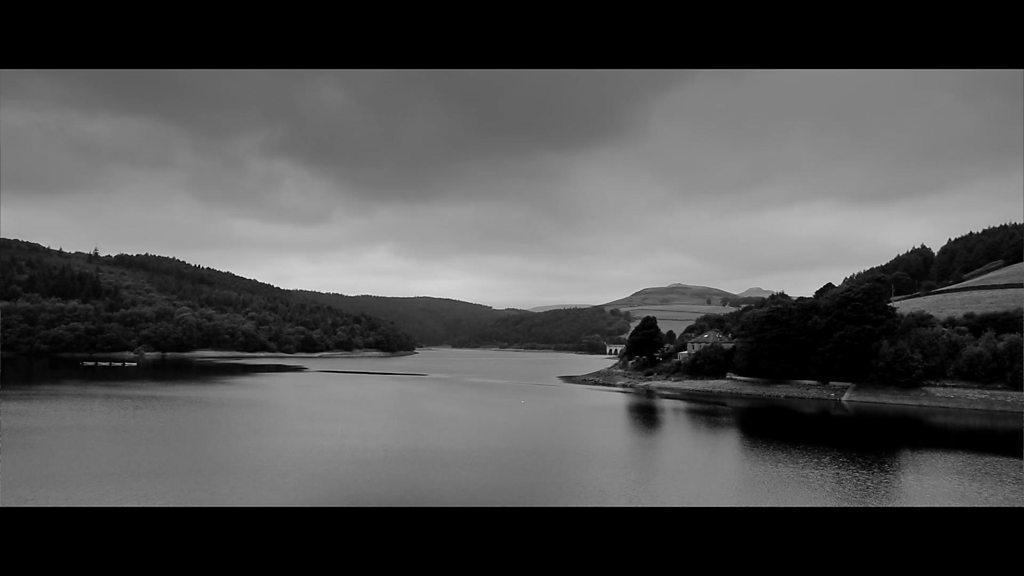Horror-crime writer Matt Wesolowski calls for evil understanding
- Published
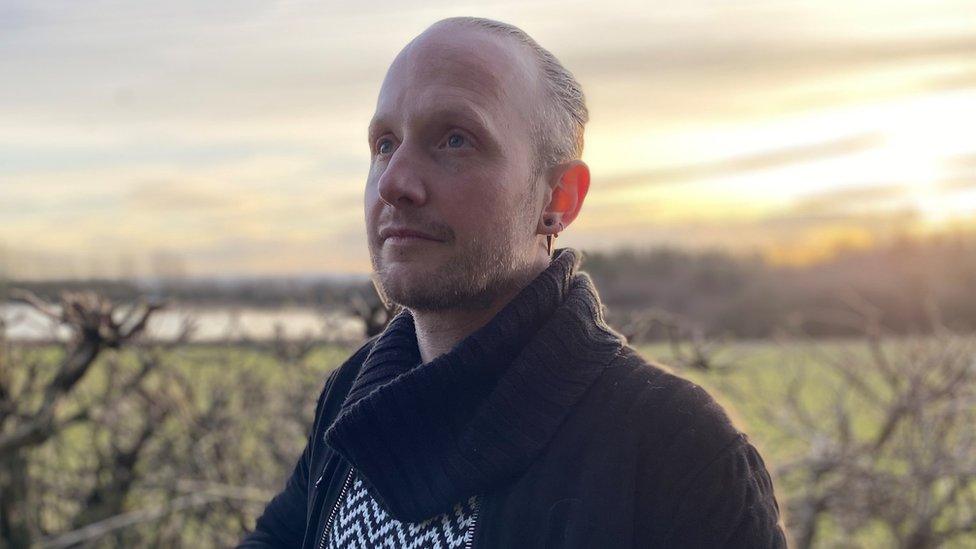
Matt Wesolowski has just published his sixth book in the Six Stories series
Author Matt Wesolowski's award-winning Six Stories novels confront readers with disturbing crimes wrapped in a supernatural horror. The BBC joined him for a walk in his favourite park to hear why he wants people to understand evil.
For a novelist whose subject matter has included cult-style slayings, child-on-child killings and demonic possessions, Matt Wesolowski is surprisingly chipper.
He laughs - the first of his many during our stroll through North Tyneside's Rising Sun Country Park - when I point this out to him.
"Yeah, I should come across like I'm more demanding and mysterious," he says, smiling. "But I have met people like that and they are interminable."
Challenging people's pre-conceptions is a core theme of Wesolowski's Six Stories series.
The premise for each novel is essentially the same.
Podcast host Scott King interviews six people connected to a chilling crime, each with a harrowing, horrific twist.
Each case has caused a swell of public anger and backlash, but (no spoilers) none is nearly as clear-cut as first appears.
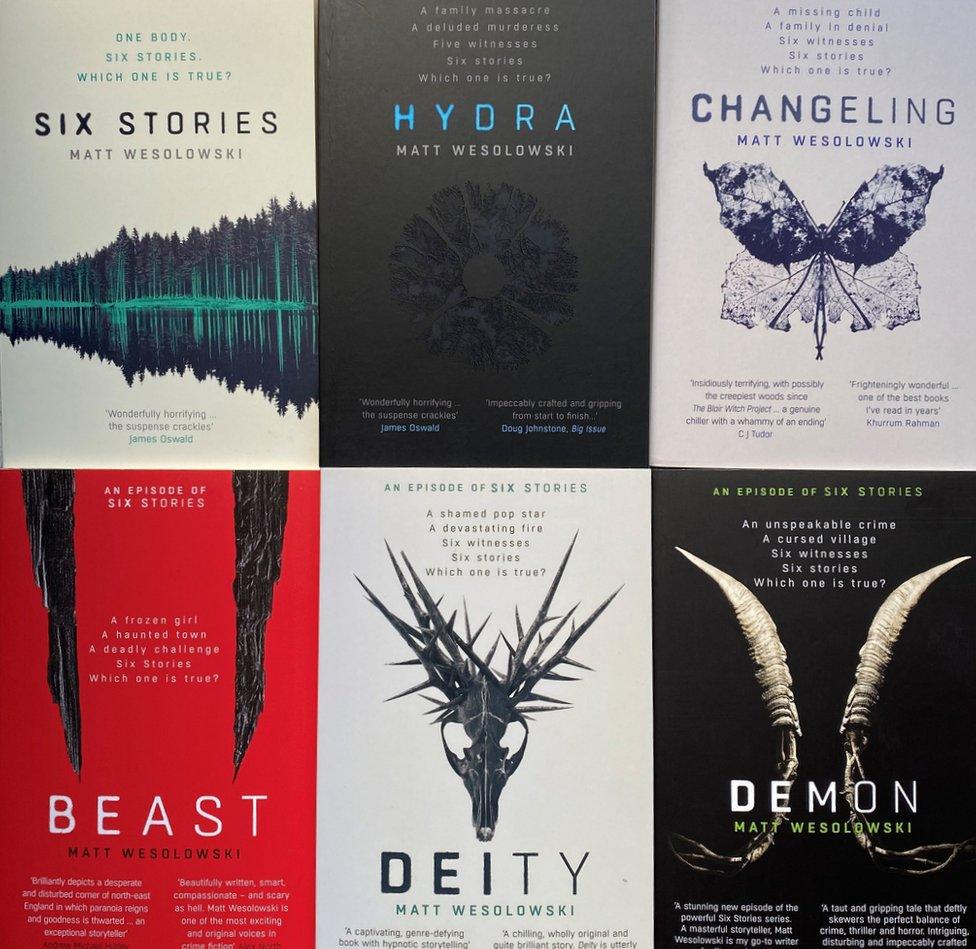
Each Six Stories novel covers a crime with a super-natural twist
The first in the series, entitled Six Stories and published in 2017, covers the mysterious death of a boy in a wood said to be inhabited by malevolent spirits.
Hydra (2018), tells the tale of a young woman who slaughters her family under the influence of sinister black-eyed children, followed by Changeling (2019) which covers the disappearance of a child in a forest riddled with fairy stories.
Fourth book Beast (2020) features the death of a teenage vlogger found frozen to death in a gothic tower, Deity (2021) is the mystery of a cult-like rock star and the questionable goings-on at his woodland mansion.
Newly published Demon examines the killing of a boy by two of his classmates said to be possessed by an evil presence.
The stories are written primarily as entertainment, but if they make people think then that's no bad thing either, according to the author.
"I have always been interested in the dark places humanity goes," the 40-year-old father-of-one says as we skirt a large pond circled by swirling gulls.
"What I find most interesting is the reaction to it."
At the core of his work, Wesolowski is seeking clarity about why young people do bad things.
"I hate the word evil and when people use that to describe a child it drives me mad," he says.
"It's not black and white, children misbehave for a reason. It's no good just labelling a troubled child as a 'devil child', that is medieval thinking.
"It's possible to find an act reprehensible and still feel sorry for the person who did it."
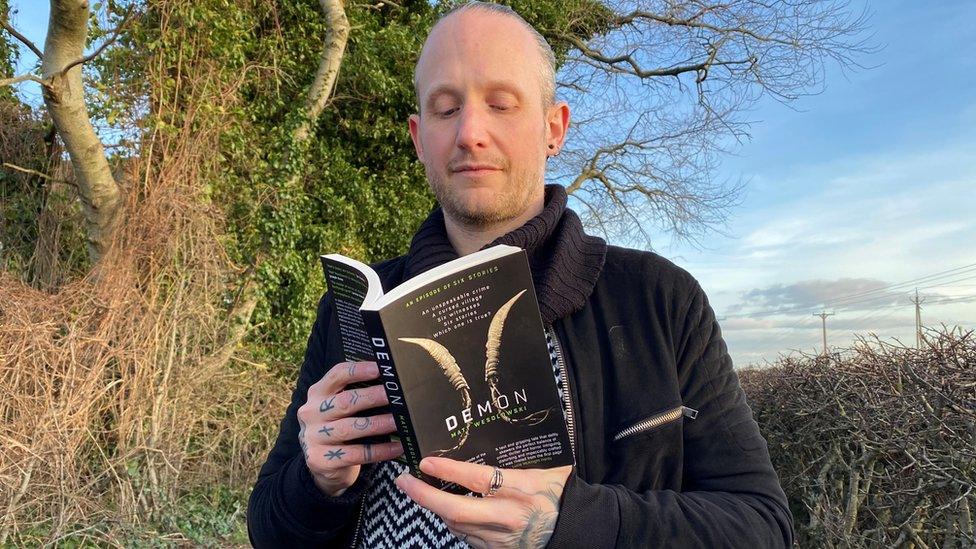
Matt Wesolowski wants his stories to entertain but also provoke people to think
Society would benefit from more understanding rather than simple outrage, Wesolowski argues, as we enter woodland stripped by winter, black crows cackling overhead in the denuded branches.
"As a parent, when I hear of a horrible case I feel that same anger and disgust as everyone else," he says.
"But really we should be trying to understand how it has got to this point," he says, adding: "How does it get to the point where a child can kill another child?
"It's not about justifying or condoning but rather understanding, and we will all be better for it when we crack that.
"People need to read and think about things, not just react."
Before becoming a full-time writer, Wesolowski - the grandson of a Polish World War Two prisoner of war who escaped to north-east England - was a teacher in pupil referral units.
He forged connections with children who had been excluded from schools, often for bad behaviour.
"I had some understanding of what they might have been through. All they wanted was just to be spoken to normally and with a bit of respect.
"Too often they had been labelled 'bad kids' and invariably that's how they saw themselves."
His youth in the Newcastle suburb of Gosforth had been a bit wayward too, his young teenage years being spent hanging around Jesmond Cemetery with his goth friends drinking and taking drugs.
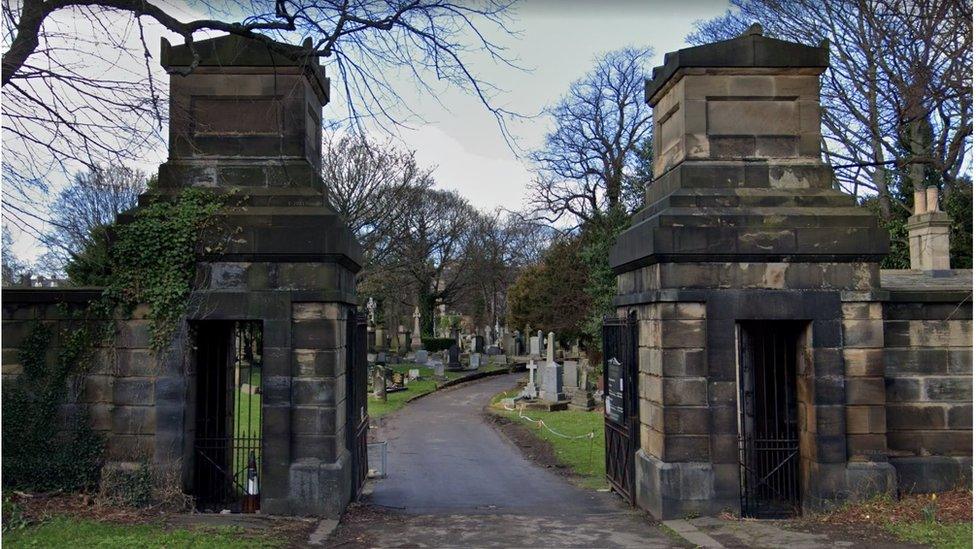
Jesmond Cemetery was a popular haunt for young Matt Wesolowski and his goth friends
He performed poorly at school and went through a patch of uncertainty before becoming an apprentice chef - "a stressful job but I loved it" - and then deciding to return to education to study linguistics at university.
Horror stories captivated the young Wesolowski and were much less scary to him than the real world.
"I always found socialising hard and had a lot of anxiety," he says of his school years, as we move to avoid three men on dirt bikes roaring past in a cloud of dust.
"I was frightened all the time, of other people and situations, but reading was an escape.
"I was never happier than when I sat on my own in my bedroom listening to an audio book while doing some drawing or playing a board game by myself.
"Stories have always had real significance to me."
The significance of the seemingly insignificant is another recurring theme of Six Stories, which Wesolowski says he learnt from true crime podcasts such as the much-lauded Serial.
"Little details mattered," he says.
"Young people also take things very seriously and little things matter to them, these tiny things that get overlooked by others.
"The way people say things and the interpretation behind these tiny details is key.
"I wanted to write a story where the little things matter, and doing it as a podcast is a great way to tell this convoluted story but with attention to detail."
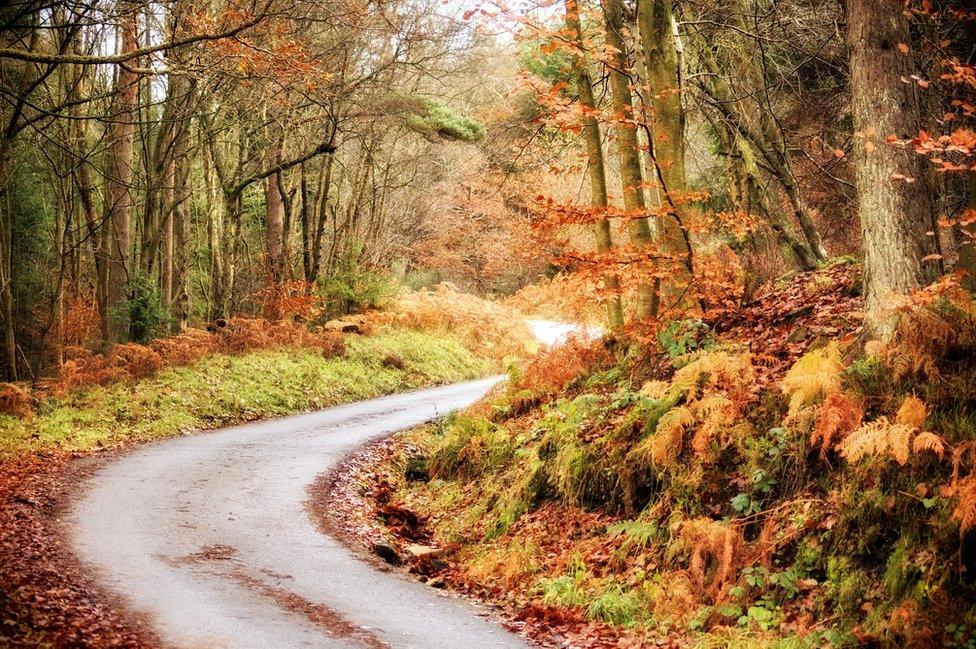
Though his settings are fictional, Wesolowski is inspired by places such as Hamsterley Forest
Books about monsters, UFOs or ghosts fascinated him, so it is little wonder the super-natural element is so strong in his work.
His parents would buy him books - from Just William to Point Horror and everything in between - while his grandmother would give him collectable monster cards from her packets of tea.
"It was only years later when I went to her house and found 47,000 boxes of PG Tips she had stored away," he says with another laugh as we warm ourselves over hot drinks in the park's café.
"Clearly she had just been buying as much as she could to get me these cards."
In his penultimate year of primary school, Horrible Histories writer Terry Deary made a class visit and that motivated the youngster to go from being a reader to a writer.
"He was just brilliant," Wesolowski says, adding: "I wrote a story called Attack of the Killer Flytraps, it had illustrations and everything, I'm sad to say it got lost somewhere.
"I found writing so cathartic, and would then try and push whatever I had written on to other people to read."
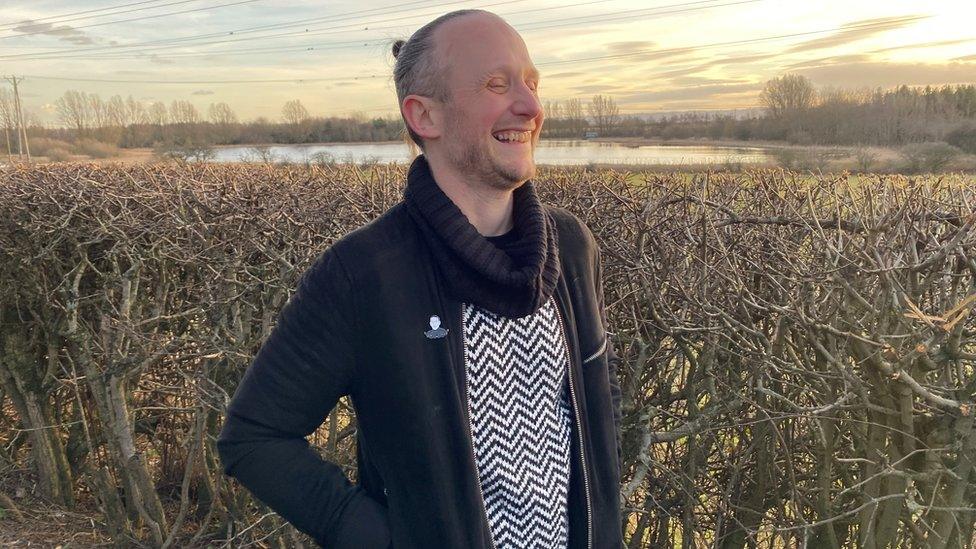
Matt Wesolowski demonstrates his cheery disposition
As well as enjoying stories, he also recognises they serve a purpose.
"We use fiction to make sense of reality. We use it to look at and think about stuff we do not like to look at but we have to look at.
"The super-natural has always been used as a mask to deal with real things.
"It's like using witches to target women, or 'demon possession' to explain behaviour rather than try to actually understand it."
With that our walk around the park is finished. With one last laugh and a cheery wave, he climbs into his car to head home to his partner Sarah and 10-year-old son.
Whether Six Stories will return remains to be seen (talks about a TV or film adaptation are ongoing), but Wesolowski is already writing his next book in a new series, fitting in 2,000 words a day among his domestic chores.
No doubt it will be another spooky, unsettling and gripping tale from the gladsome Goth.

Follow BBC North East & Cumbria on Twitter, external, Facebook, external and Instagram, external. Send your story ideas to northeastandcumbria@bbc.co.uk, external.
Related topics
- Published19 September 2021
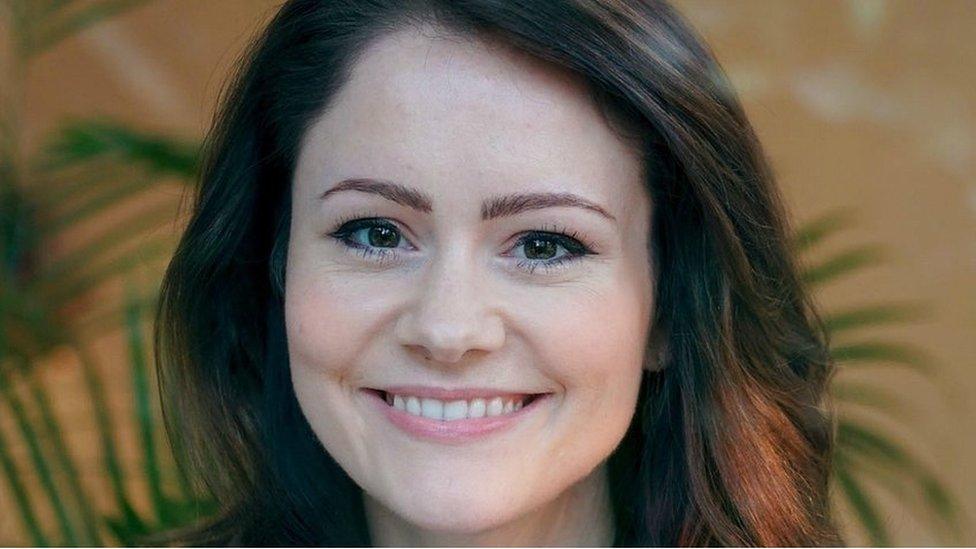
- Published31 December 2021
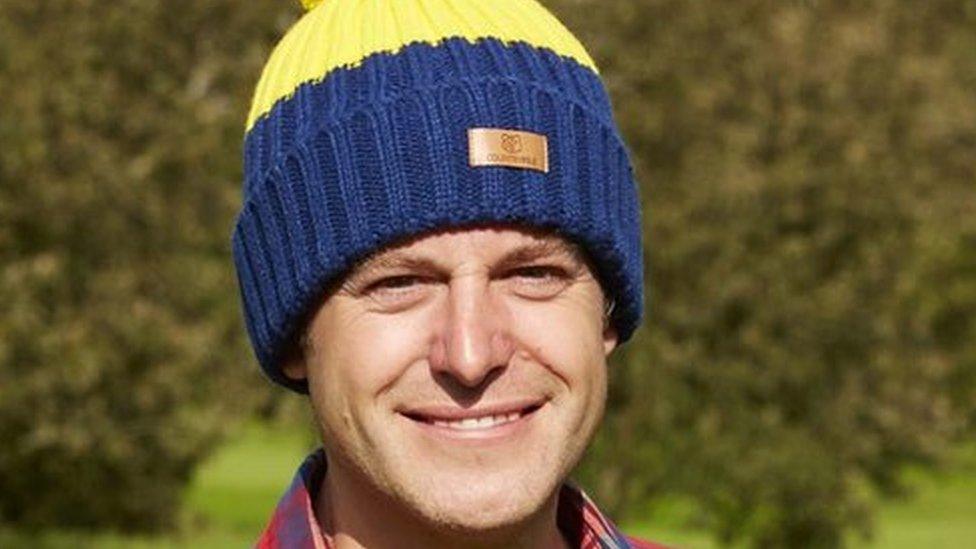
- Published4 September 2018
